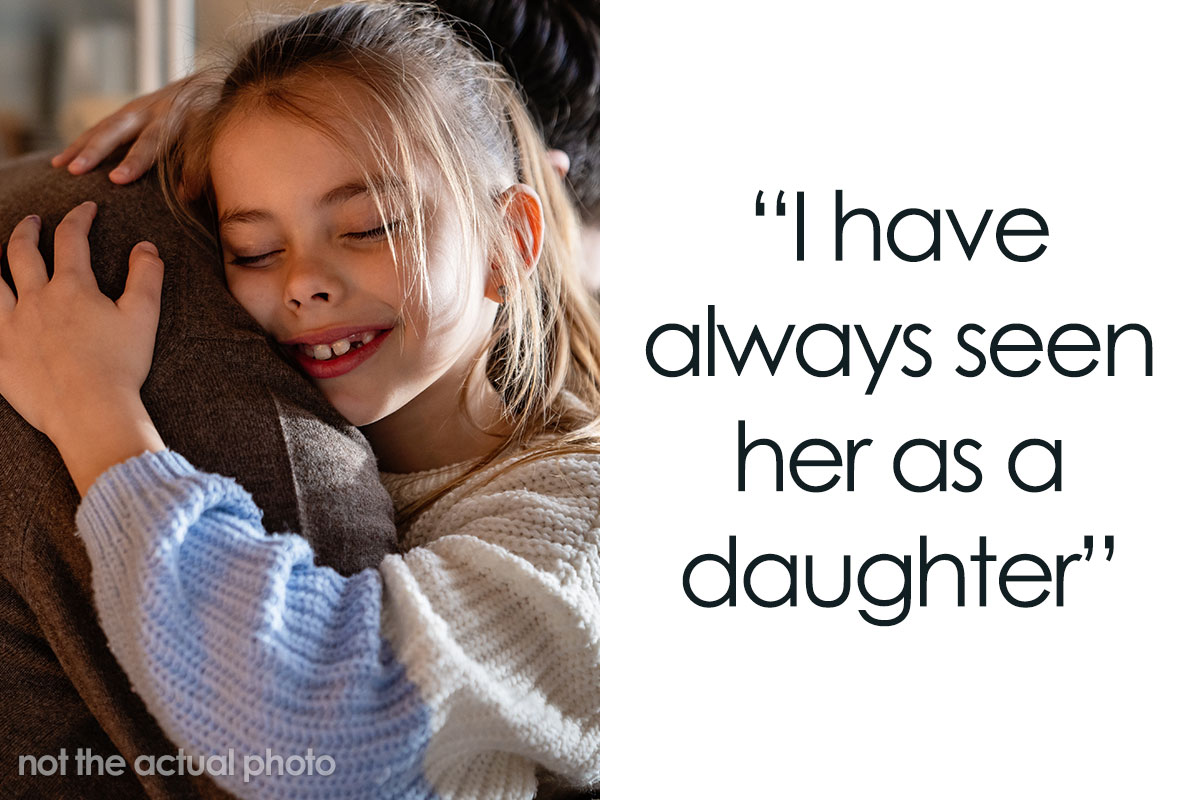
“Thank You, Dad”: Guy Has The Internet In Tears After Getting The Truth Off His Chest
Interview With ExpertLife can often be unfair. Some people are forced to become caregivers out of the blue, but they take on these new responsibilities with pride. What helps them weather the countless storms is knowing that they’re making these sacrifices for their loved ones. No matter how tough things get, they’re always by their side. At the end of the day—this is what truly matters.
Redditor u/Beneficial_Pizza7137 recently went viral on Reddit and all over the internet after sharing how he took in and raised his younger sister, who finally ended up calling him ‘dad.’ Scroll down for the wholesome and heartwarming story that might just restore some of your faith in humanity.
Bored Panda wanted to learn about some of the main challenges of raising one’s siblings and how others can support young caregivers, so we reached out to school psychology expert Jessica Koehler, Ph.D. She is the founder of the Koehler Academy, a published author, and the host of the Beyond School Walls blog on Psychology Today. You’ll find the insights that she shared with us as you read on.
Being a young parent is challenging enough, but things get even more complicated when you’re raising your sibling
Image credits: Alex Bodini / unsplash (not the actual photo)
One man shared a heartwarming story about how he became a dad to his younger sister
Image credits: Beneficial_Pizza7137
There are so many moving parts to consider when you’re responsible for someone else’s welfare
Image credits: J carter / pexels (not the actual photo)
There are a lot of different factors to keep track of if you have to take in a younger relative due to complicated family situations. From work and chores to studying and actual parenting.
First, there’s your financial situation to consider. You need to get money from somewhere to keep a roof over your head and to put food on the table. That means that you have to find work and figure out how you’ll juggle that with looking after your younger sibling.
You’ll need to come up with an airtight schedule for how they’ll get to school and come back home. Everyone needs to be on the same page about when you’ll be back from work, who does what chores, and who’s responsible for cooking food and when.
Depending on the age of the child, the parent may want to teach them various skills (e.g. cooking, washing the dishes, vacuuming, doing their homework, etc.) to be more independent. They can talk about the importance of sharing the housework and why this is vital when one of them has to work.
According to Dr. Koehler, there are many different potential challenges to consider when raising younger siblings. “Often, older siblings, especially those who are still adolescents or young adults themselves, may not have fully developed the emotional and psychological maturity needed for parenting,” she explained to Bored Panda that this, in turn, can make it hard for them to understand and manage the younger child’s emotional and developmental needs.
Meanwhile, as the young individual takes on the dual responsibilities of being a parent and a sibling to someone, it blurs the line between the two roles. This can be stressful.
On top of that, there are other considerations like money and time to keep in mind. The founder of the Koehler Academy told Bored Panda that because raising a child requires significant financial resources and time commitment, older siblings might find themselves struggling to balance work and school with childcare. This can, in some cases, lead to burnout.
Having a proper social support network is invaluable
Image credits: August de Richelieu / pexels (not the actual photo)
Another major issue is that these young sibling caregivers might not have a strong support network. “With guidance from experienced adults or access to parental resources, they can provide appropriate care or make informed decisions about the child’s upbringing,” Dr. Koehler shared with Bored Panda.
We asked the expert how other people can support these older siblings in their caregiving role. She explained to us that it all starts with creating a support network. “This can include extended family, friends, community organizations, and professionals like psychologists, therapists, and teachers,” she said that these people can then provide advice, and emotional support, as well as offer practical help.
What’s more, young caregivers should take the time to learn more about child development and parenting, whether using online resources or educating themselves in person.
According to Dr. Koehler, it is vital that the caregivers learn to effectively manage their time. They can do so by creating schedules so they can balance work, study, childcare, as well as their personal time. “Equally important is self-care, ensuring that the caregiver’s physical and emotional needs are met.”
The expert noted that it’s also essential to recognize when you may need the help of a professional for guidance or support, “whether it’s for dealing with emotional stress, behavioral issues in the child, or practical challenges.”
Raising a younger sibling is somewhat similar to being a young, single parent. And though it can be incredibly challenging, it’s also deeply rewarding. You are, in effect, nurturing and guiding a tiny little person, helping them become the very best version of themselves. Arguably, it’s the biggest calling in the world.
Whether you’re a biological parent, guardian, or older sibling, parenting is always easier when you have a strong support network. When you have people in your life whom you know you can rely on, everything seems less overwhelming.
Your partner, relatives, friends, neighbors, and coworkers can help you out with babysitting duties. Or they can lend a hand with cooking a meal or helping out with the chores when the world seems to be falling apart underneath your feet.
Even something as simple as hearing the young parent out does wonders. A problem shared is, very often, a problem halved. And you would be surprised by how many kind and caring people there are in the world, who are glad to lend a helping hand.
Good parents understand why it’s vital to constantly communicate with their children
Image credits: Vlada Karpovich / pexels (not the actual photo)
While being a ‘perfect’ parent is impossible and only leads to frustration, it’s still important to get the basics right. Research shows that authoritative parenting, which relies on calm assertiveness, is the best course of action, compared to the other three strategies of authoritarian, permissive, and neglectful parenting.
Authoritative parents set firm boundaries, always consider their kids’ feelings, and rely on incredibly open communication. They’re very transparent about the reasons behind the rules they have at home and are clear about the consequences of bad behavior.
Generally speaking, children who are raised this way grow up to be happier, resilient, emotionally healthy, get good academic results, are self-reliant, and aren’t afraid to stand up for themselves.
The foundation of being a good dad is making your family a priority (of course, remembering to take care of yourself, too). What really matters is that dads show their kids that they love and appreciate them.
This means spending quality time with them, even when there are issues at work and a dozen other sources of stress. Those small moments spent together are worth more than anything.
The author was happy to respond to some people’s comments
Image credits: nd3000 / envato (not the actual photo)
The young dad later shared a wholesome update
Image credits: Beneficial_Pizza7137
The author was very vulnerable with his readers
The internet was blown away by how pure and loving the story was
Give them a jellybean squish from me? I really missed my boy tonight (he was in an RTA end of October).
Load More Replies...My ex-wife is schizophrenic and I hadn't seen my daughter from the time she was almost six, and was 28 when she found me. At the time, she had three kids, 10, 7, and 3. She had no job, no future, her then-husband was in jail, and she was living with her grandmother. Even though I had no financial obligations, I immediately took responsibility, put her through college (where now she has a Masters in Clinical Psychology for Arizona State), and financially took care of all of them (over $350k which wasn't planned). And fifteen years later, I'm still the Bank of Dad when I need to be. And she'll receive a seven figure inheritance when I'm gone. I did it because that's how I was raised, and my own Dad would have done the same if he had the means. Sometimes the things you do are just right and you do it because she's your kid. And so I did.
Give them a jellybean squish from me? I really missed my boy tonight (he was in an RTA end of October).
Load More Replies...My ex-wife is schizophrenic and I hadn't seen my daughter from the time she was almost six, and was 28 when she found me. At the time, she had three kids, 10, 7, and 3. She had no job, no future, her then-husband was in jail, and she was living with her grandmother. Even though I had no financial obligations, I immediately took responsibility, put her through college (where now she has a Masters in Clinical Psychology for Arizona State), and financially took care of all of them (over $350k which wasn't planned). And fifteen years later, I'm still the Bank of Dad when I need to be. And she'll receive a seven figure inheritance when I'm gone. I did it because that's how I was raised, and my own Dad would have done the same if he had the means. Sometimes the things you do are just right and you do it because she's your kid. And so I did.

 Dark Mode
Dark Mode 

 No fees, cancel anytime
No fees, cancel anytime 


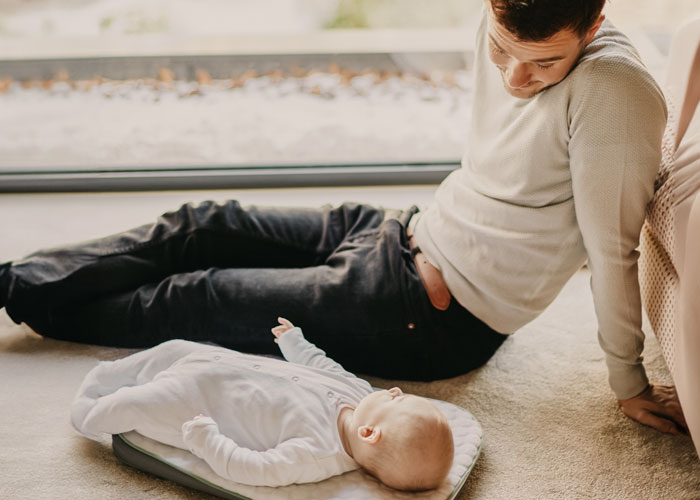
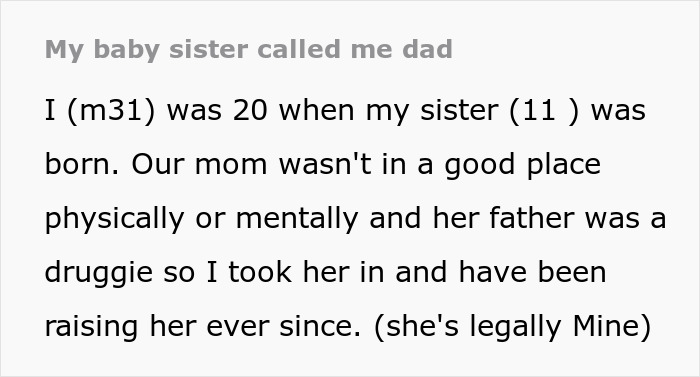
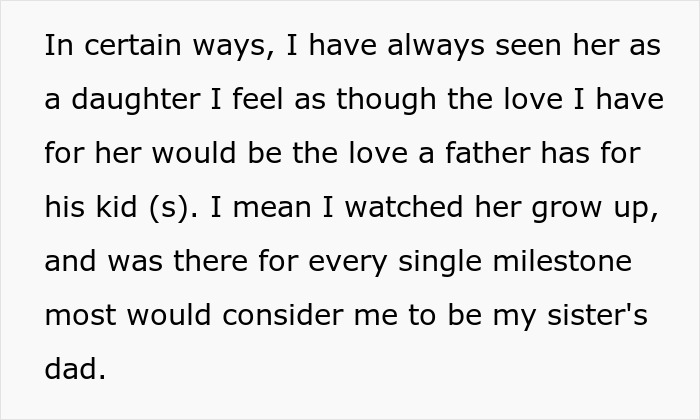
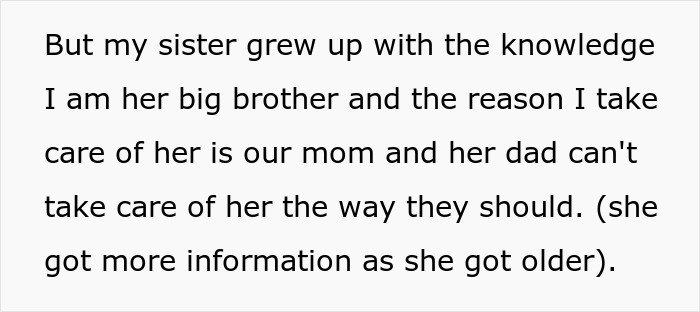
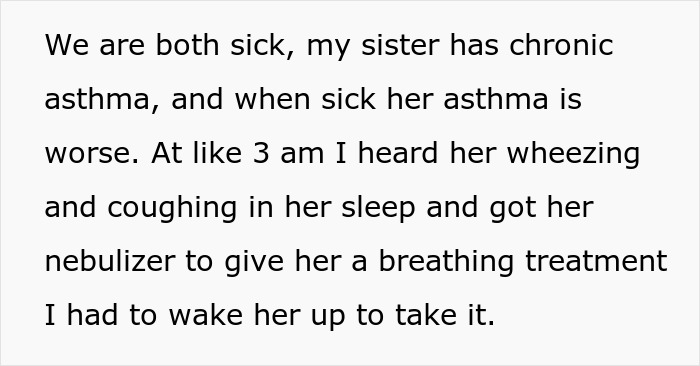
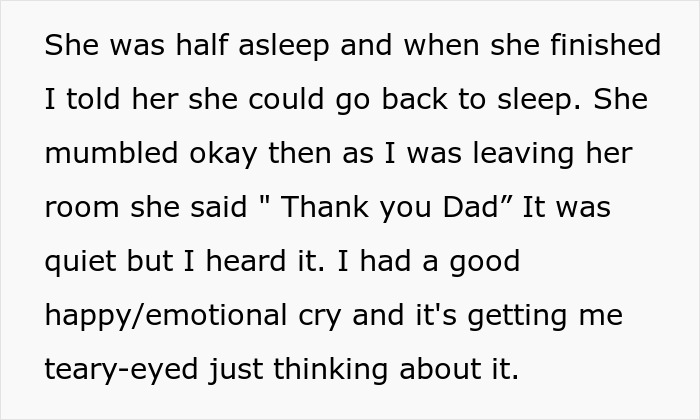
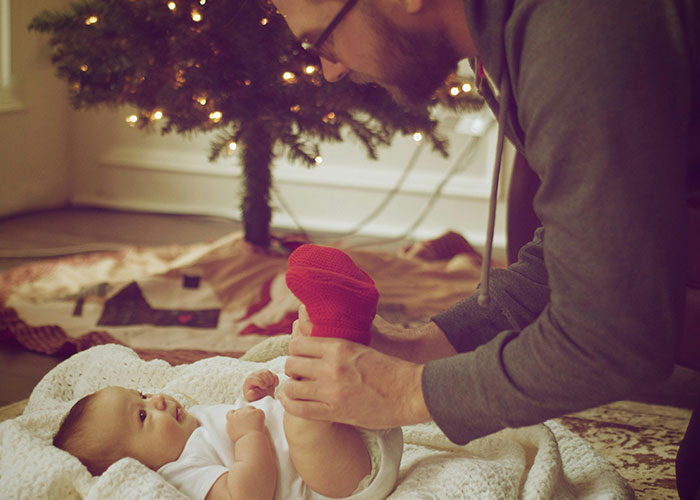
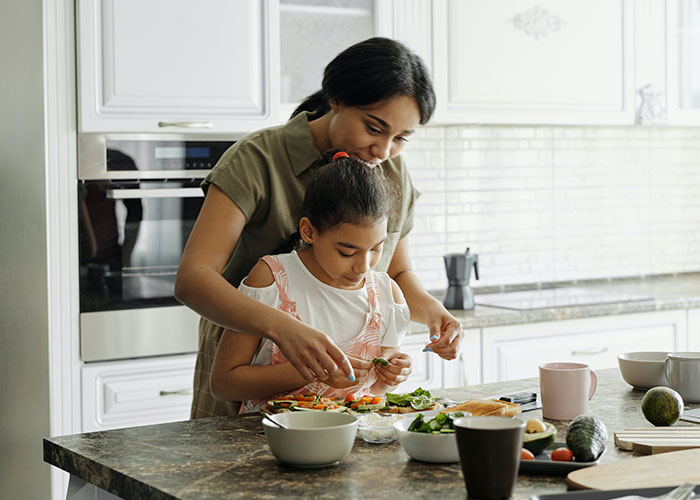
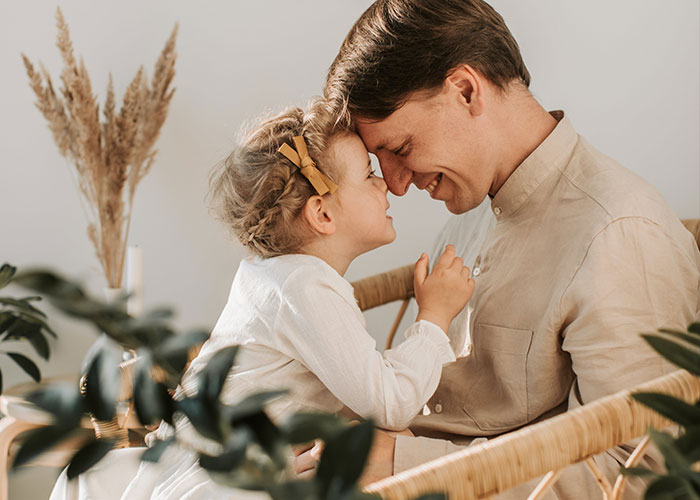
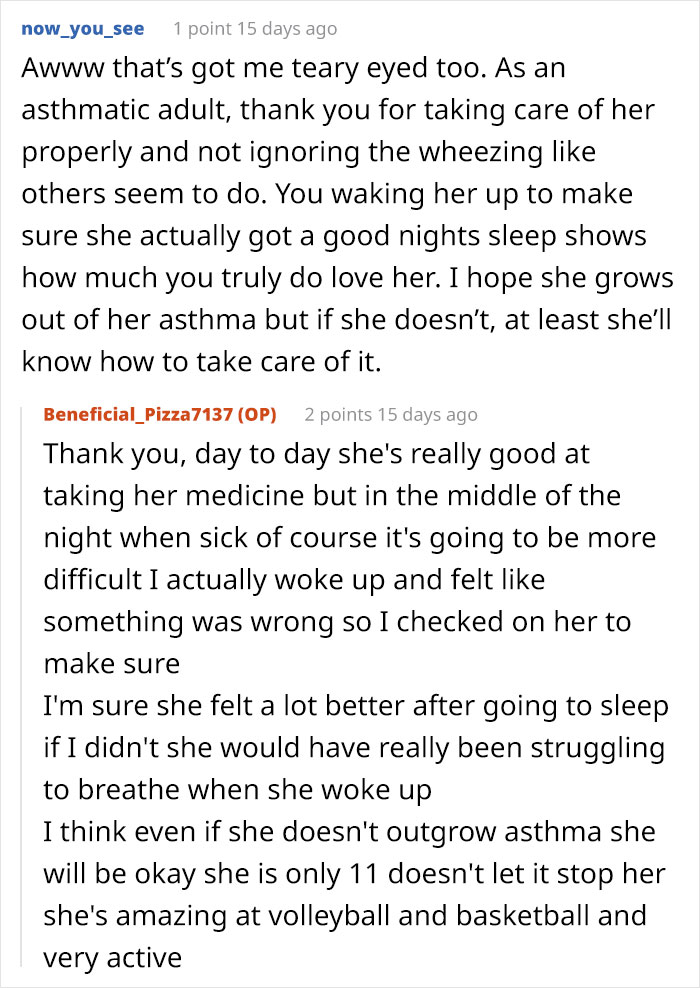

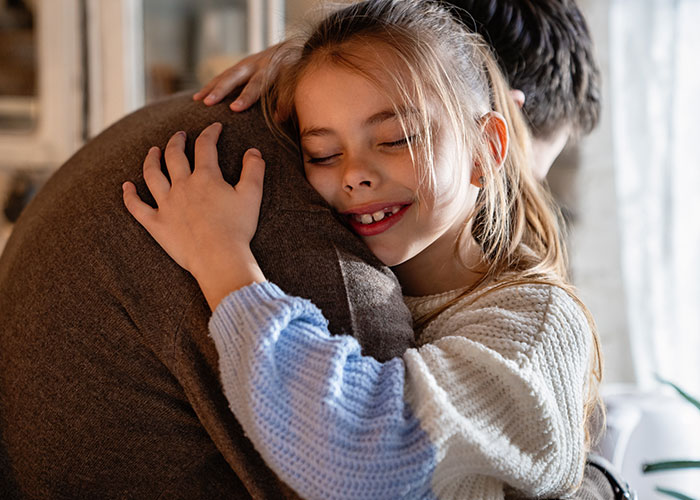
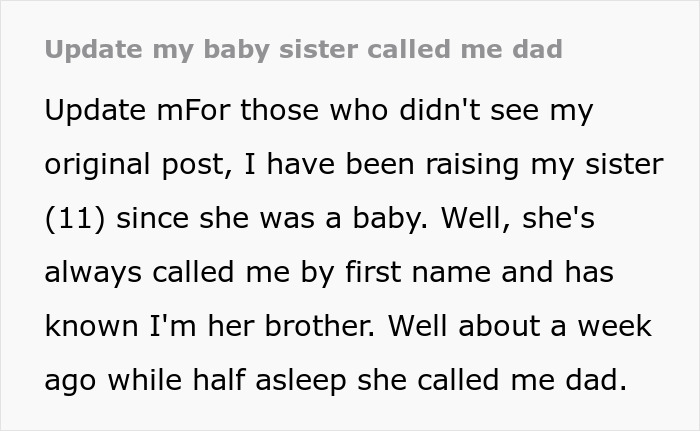
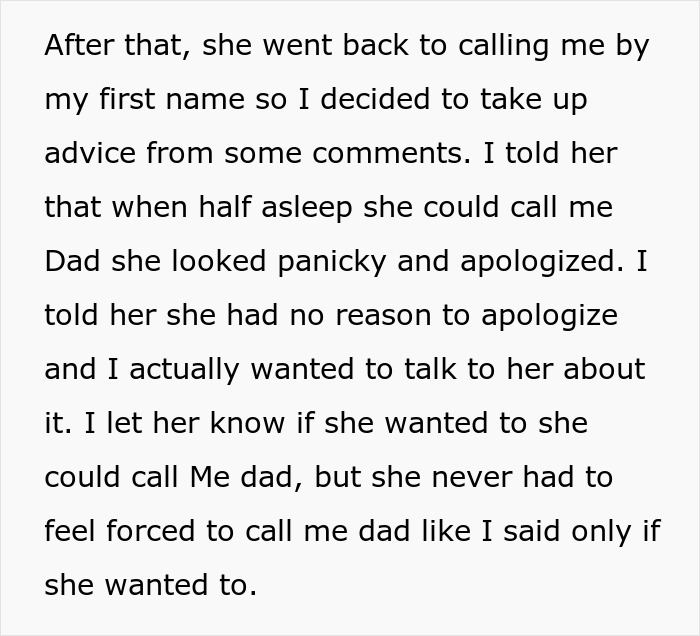
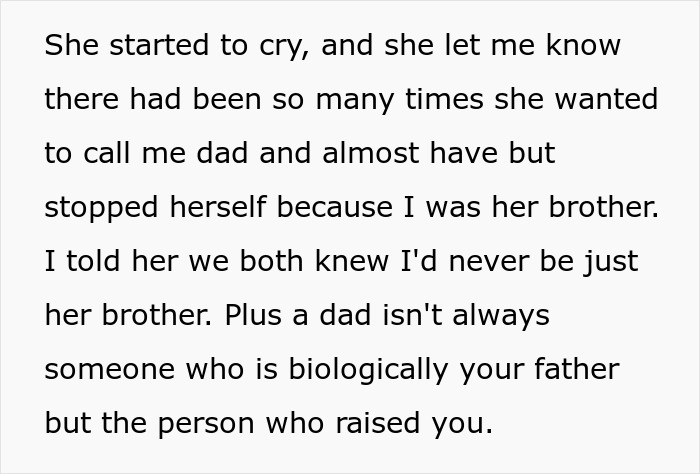
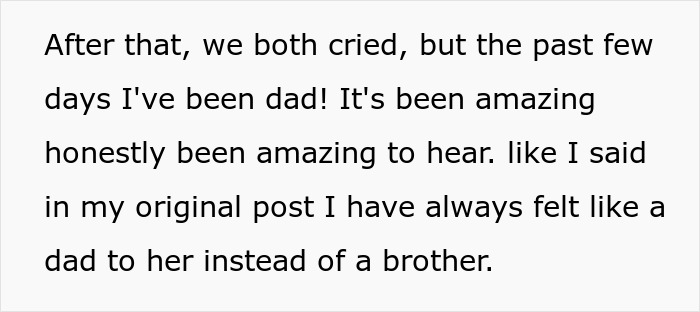




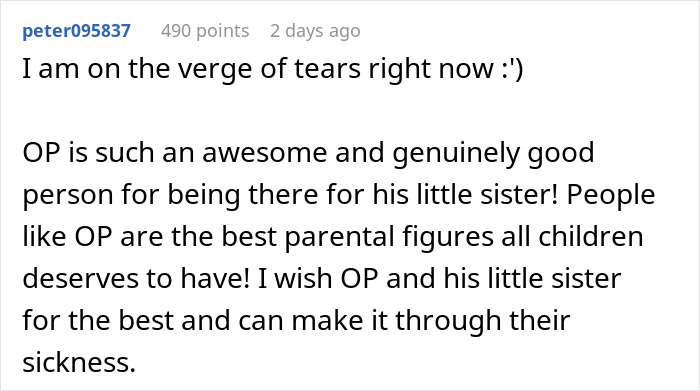
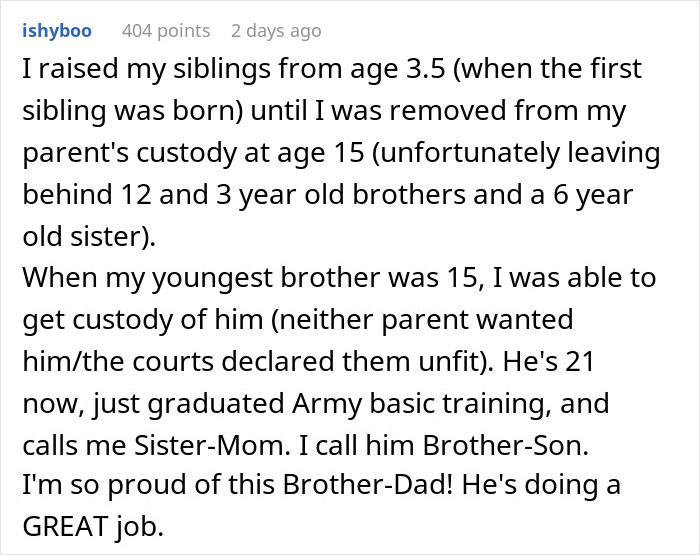


















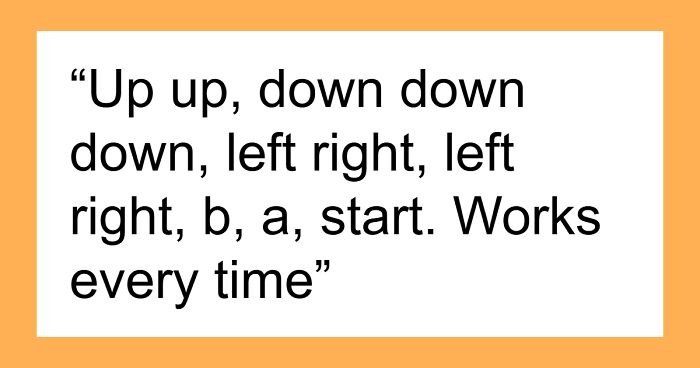

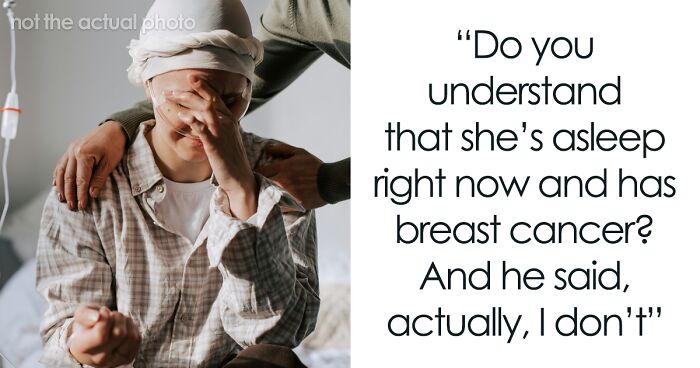

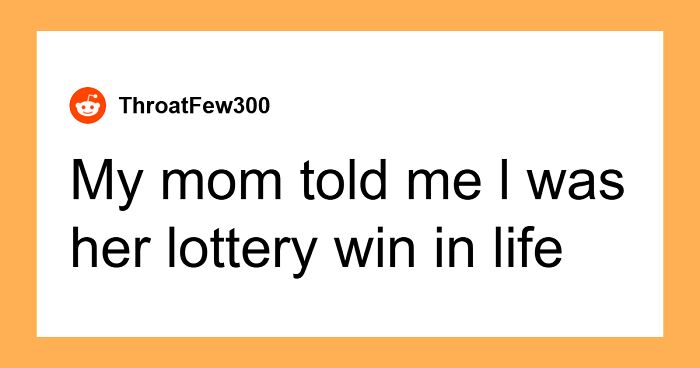

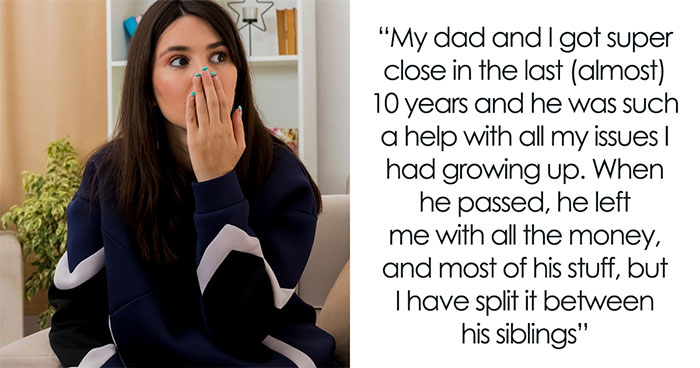

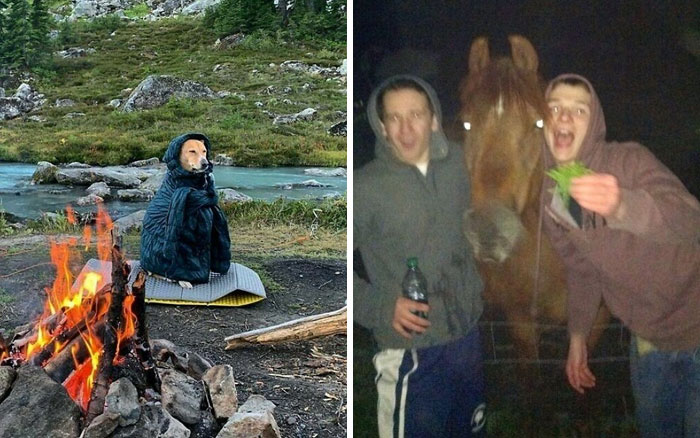


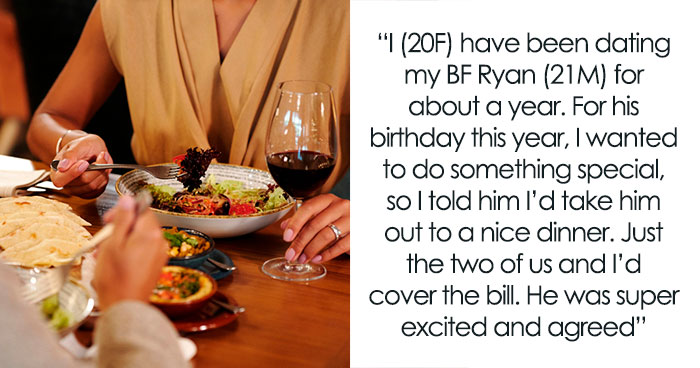
152
24